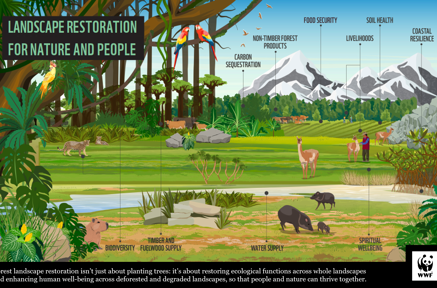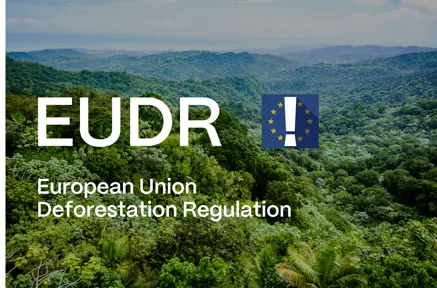Business is yet to unlock the true value of protecting and restoring nature

By: José Matthijsse, President and General Manager of Europe, SIG
Earlier this month, WWF released new figures which paint a distressing picture: in the last 50 years, global wildlife population numbers have fallen by 73%. The natural world has reached a tipping point. The case for protecting and restoring nature is well-recognised by scientists, the European Commission and NGOs, but not so clear yet from the perspective of European businesses. Europe will not meet its climate goals without nature-based solutions, Europe will not achieve sustainable growth without nature; at SIG, we are recognising that nature is fundamentally intertwined with business.
There are signs of positive momentum for action on nature in Europe. The European Green Deal brought about a series of new strategies and laws, including a law on nature restoration. In September, President von der Leyen spoke of the necessity to ‘fundamentally rethink’ the link between our economy and nature. Meanwhile, Mario Draghi’s competitiveness report outlined the necessity for integrated policies across the EU if we are to unlock growth. I believe both these imperatives must be combined. Nature and growth are not a trade-off, but mutually reinforcing.
There is a path towards reimagining our relationship with nature so that it is both preserved and supports sectors critical to the EU’s climate transition. This can help realise EU growth, support innovation and meet climate goals. Forests are an important example. Europe still has forests which host habitats for biodiversity, contribute to water resilience, store carbon and, crucially, support many key industries in Europe. Forests are a critical resource for mitigating climate change and growing Europe’s economy. We need to protect them to support biodiversity, while also optimising how they can be used to help industries to decarbonise and grow. There are ways to do this: protecting old forests that have not been intensively logged, restoring critical areas of nature, and, ensuring sourcing is covered by the world’s most rigorous 3rd party forestry standard, FSC™.
SIG has been a member of FSC™ since 2008, and by driving change we were, in 2021, the first in our industry to purchase 100% of our liquid packaging board with FSC™ certification1. We have focused on product innovation: our SIG Terra packaging range increases the paper content in our cartons to up to 82%, by removing aluminium and ensuring that all main materials are linked to forest-based renewable resources. We believe the future of packaging is regenerative, and deeply linked to nature-based solutions.
On top of that operational commitment, we’ve also set out a commitment to support nature beyond our raw materials usage with our Forest+ goal to improve, protect and restore 650,000 hectares of forest by 2030. To achieve this goal, we partnered with WWF in 2022 and are currently supporting forest landscape projects in Mexico and Malaysia through WWF’s Forests Forward programme.
In September, we attended WWF’s Business and Biodiversity forum, where this message was reiterated: ‘It is not too late to do what nature needs, but we need to accelerate drastically, and to work together to build collective solutions.’ More must be done by the private sector to place value in nature, both in terms of protecting it but also recognising healthy ecosystems can help business growth and mitigate risks.
To get there, industry actors like SIG must go beyond just meeting regulations. There are a set of immediate actions for forests that I am calling on the private sector to support.
First, the EU needs common criteria of sustainable forest management, applicable to all Member States. This will help to overcome discrepancies in treatment of forests across Europe and encourage companies to commit to the strongest, most credible standard of forest management. Stronger common criteria will help protect biodiversity and could unlock investment into nature-based solutions.
Secondly, inspired by the EU’s Nature Restoration Law, companies can set ambitious targets on restoration. These can encourage collaboration between local jurisdictions, business and smallholders. This may also create new business opportunities by placing greater value in protecting and restoring nature.
Nature, and nature-based solutions, will be central to this if the private sector and regulators can work together to take transformative action. The combination of protecting nature, using renewable sources sustainably, and large-scale nature restoration can help Europe achieve its goals of sustainable economic growth.
1 FSC™ trademark license code: FSC™ C020428


How conserving the jaguar king can protect its forest kingdom

